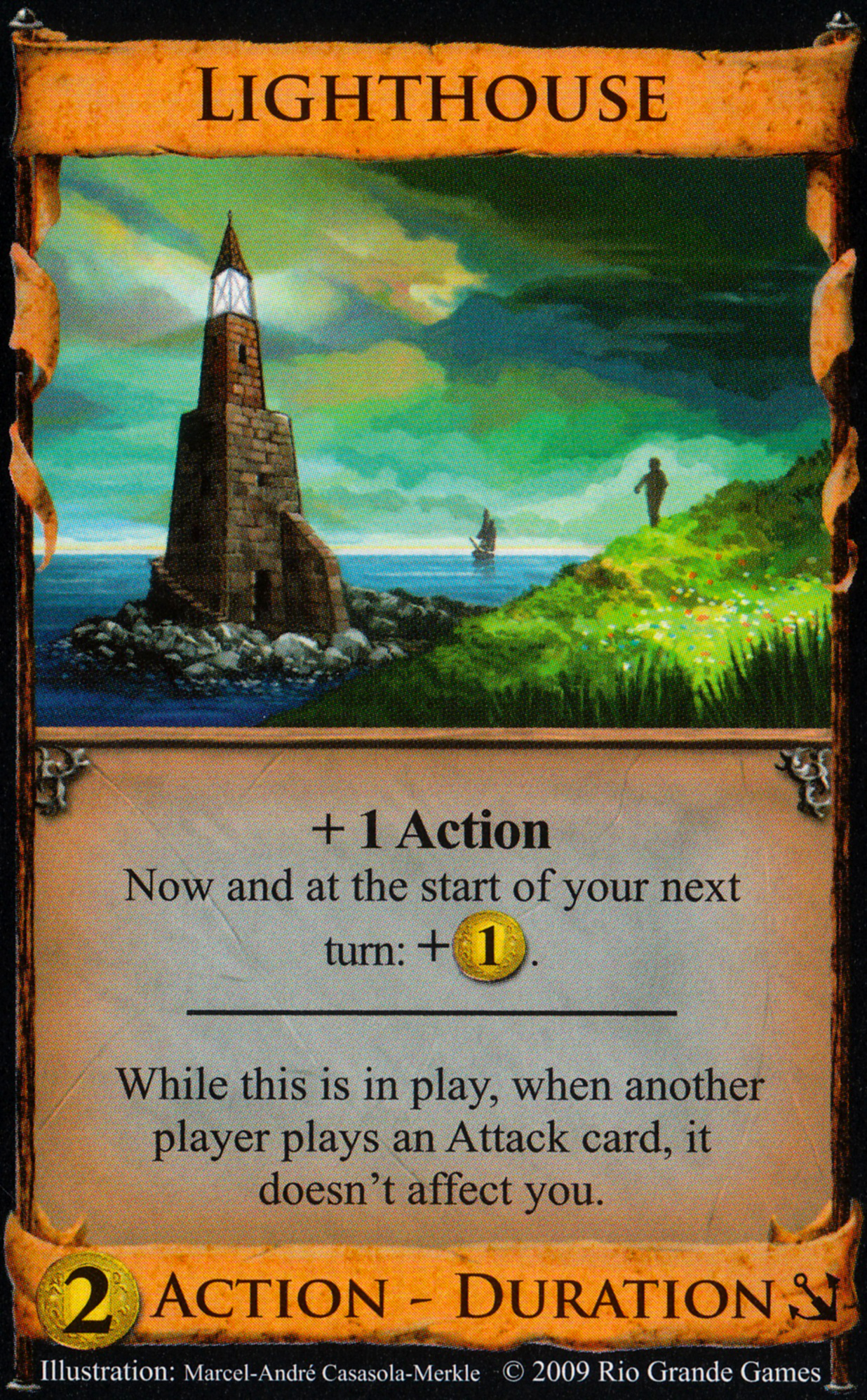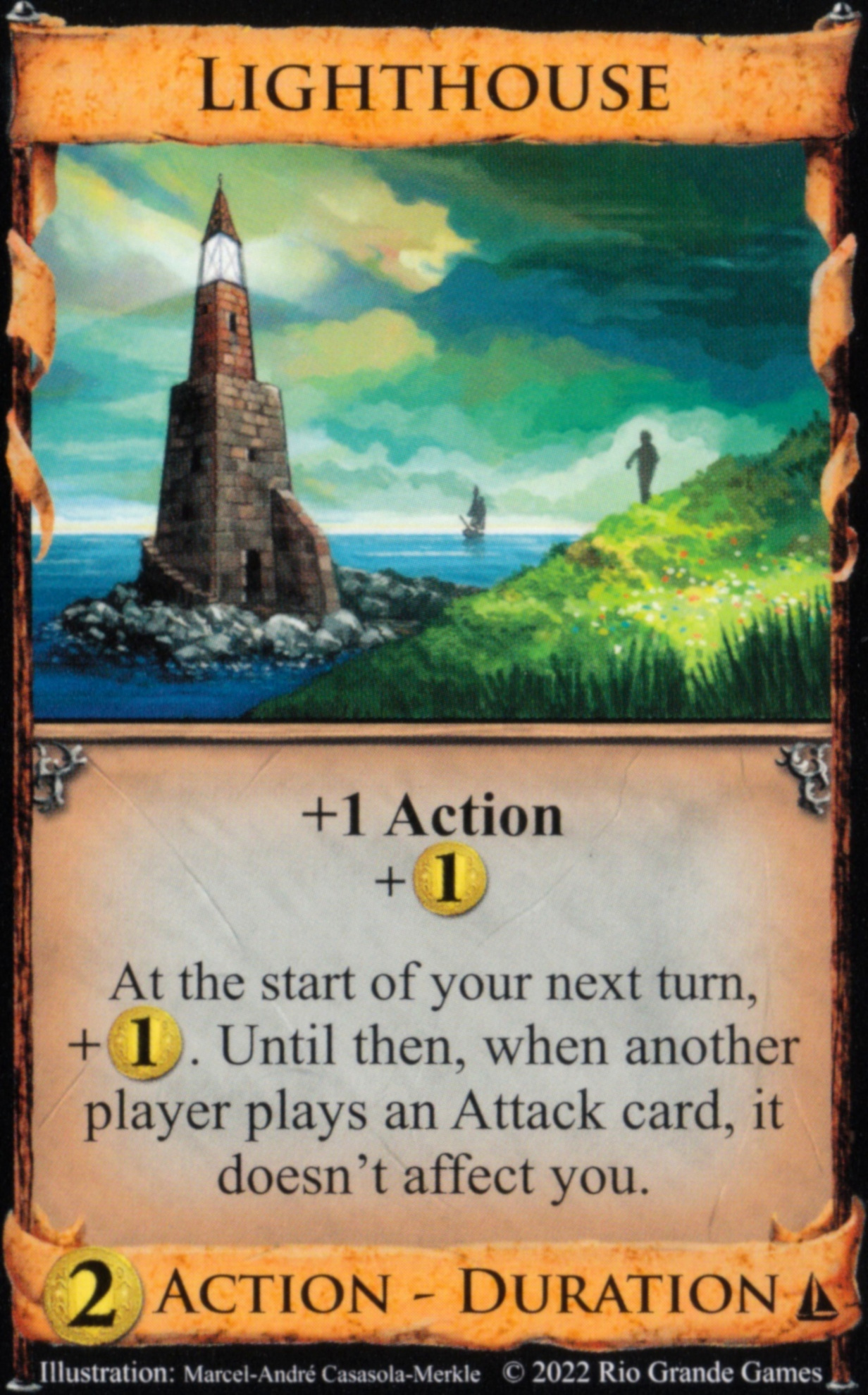Yeah I think that all makes sense, except that new ruling does still require an understanding that Enchantress is not limited to replacing "FTI as a result of playing a card"; or alternatively an understanding that when Chameleon makes you FTI, it still counts as FTI as a result of playing a card. Come to think of it, that second option is pretty much in-line with the entire main discussion in this thread, the ruling that Sheep's + counts as getting +
counts as getting + from playing the card.
from playing the card.
Well, I don't agree with the last part. It's rather the opposite: Per the ruling, Sheep's +$2 does not count as FTI. I've been suggesting that it should as one possible solution to the problem as I see it.
No, I wasn't saying that Sheep's + counts as FTI. I was saying that Sheep's +
counts as FTI. I was saying that Sheep's + counts as something that playing the card does, just like how Chameleon's "follow the instructions" counts as something that playing the card does.
counts as something that playing the card does, just like how Chameleon's "follow the instructions" counts as something that playing the card does.
In this case, the question wasn't whether Chameleon counted as following the instructions or not, it was the question of whether the FTI was a result of playing the card or not (due to the rule you quoted earlier that Enchantress only cares about FTI that results from playing the card).
I still say that the two things are fundamentally different.
Given the new Chameleon ruling, there is no question that we're following the played card's instructions. The issue you brought up is just whether that counts as a result of playing the card. We always FTI as a result of playing a card, and the question is, does Chameleon change that or not.
Not following with the bold part, unless you're making "as a result of playing a card" into a more generic thing including "as a result of using a Way". We FTI because of anything we do which the game rules tell us causes FTI. Playing cards is one of those things. Buying an Event is another. Gaining a card with certain Projects having been purchased is another. The rules saying "when you play a card, FTI" is just one thing in the game that can cause us to FTI. And as per your quote earlier, Enchantress only cares about that sort of FTI, not other ones.
What I meant: When playing a card, we always FTI as a result of playing the card, and the question is, does Chameleon change that or not: Does Chameleon make it so we don't FTI as a result of playing the card.
Note that whenever I use "FTI", I mean "follow the card's on-play instructions". That's what "FTI" is short-hand for. It's not about following the below-the-line ability or a Project's ability or even a Way's ability. "There is no FTI" means we're not following the card's on-play instructions. Of course we might be following other intructions (like on a Way), but that's not what that phrase expresses.
Maybe this will make my post clearer.
"Enchantress only triggers when you FTI as a result of playing the card" was the quote. Under a straight-forward interpretation of how Ways work, I wouldn't have thought that Chameleon telling you to FTI would count as "FTI as a result of playing the card". It's "FTI as a result of Chameleon telling you to". Just like how you've been arguing that the +$2 doesn't seem like "+ as a result of playing the card". The fact that playing the card is what allowed you to use Chameleon in the first place should be separate.
as a result of playing the card". The fact that playing the card is what allowed you to use Chameleon in the first place should be separate.
However, under Donald's ruling that "What a way does counts as what playing the card does", then the Chameleon + Enchantress thing is consistent with the Harbor Village + Sheep thing;
You seem to be confusing the two rulings when you talk about Chameleon. The general Way ruling that a Way means that the played card makes you do things is not enough to make the Chameleon + Enchantress ruling be true. Under that ruling alone, Chameleon can escape Enchantress. The Chameleon + Enchantress ruling is a separate thing.
You presented a good argument earlier for why even the Chameleon + Enchantress ruling could be seen as not enough to prevent Chameleon from escaping Enchantress. As I said then, we'd have to say that Chameleon does
not cancel FTI, like other Ways do. Now you seem to be assuming that we
don't view Chameleon this way. Well I
do, because that's how the ruling makes sense.
That is not the question with the Sheep (Way) issue. Sheep definitely changes that. As Donald X. said, there's no FTI step.
I think you're talking about the wrong "that" in the bolded word. Sheep changes it so you aren't FTI, yes. But in this case, nothing I'm saying deals with whether you are FTI or not. It deals purely with "what counts as part of what playing the card does". The ruling is that Sheep's instructions count as part of what playing the card does. And the same ruling also means that Chameleon's instructions count as part of what playing the card does. Which means that whether you use Chameleon or not, you're still following the card's instructions "as a result of playing the card".
The ruling doesn't really say that Sheep's instructions count as part of what
playing the card does.
Playing the card does many things, including Adventures tokens. The ruling says that what you do when
following Sheep's instructions counts as what the card
makes you do. Yes, it's fuzzy and unclear, but that's the way this ruling is. It's about this undefined concept of the card "making you" do something. It's not about attributing instructions.
So, as I said above, the "Sheep ruling" does not mean that you're FTI as a result of playing the card with Chameleon. Rather, it's like
you said a few posts ago, even with that ruling and with the new Chameleon ruling, we could think that Chameleon means we're
not FTI. We need to think of Chameleon as different from the other Ways, like I said above.
The problem I have with the Sheep ruling is that "what the card makes you do" consists of following instructions on another card. This is also unlike the Chameleon issue.
Are you implying that when you use Chameleon, you aren't following the instructions on Chameleon?
No, read it again. Of course we're following the instructions on the Way, whether it's Chamleon or any other.
But the Sheep ruling is that
"what the card makes you do" consists of following instructions on
another card. That's not related to what the Chameleon ruling is about, as I explained.
I'm saying Chameleon works the same way all Ways do: When you choose to use them, you follow their instructions. It just so happens that the first instruction on Chameleon is to follow the instructions on the card you played.
That's not in accordance to how we have to see Chameleon to make the new ruling work. If you look at Chameleon that way, the way you just described, the new ruling does not work, as you explained a few posts ago.




 counts as getting +
counts as getting +